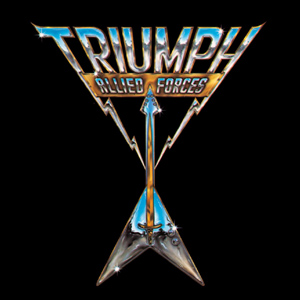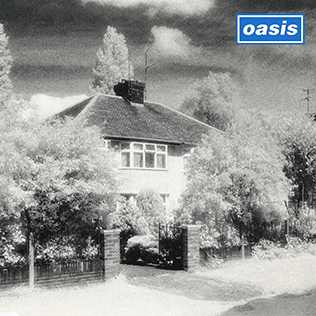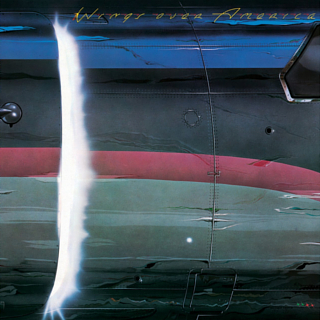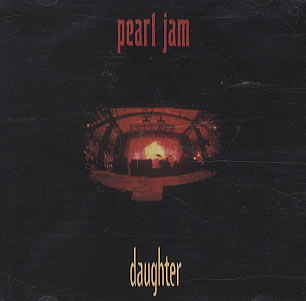
Triumph were a Canadian hard rock band formed in 1975 that was popular during the late 1970s and the 1980s, building on its reputation and success as a live band. Between its 16 albums and DVDs, the band has received 18 gold and nine platinum awards in Canada and the United States. They were nominated for multiple Juno Awards, including the "Group of the Year Award" in 1979, 1985, 1986, and 1987. They were inducted into the Canadian Music Industry Hall of Fame in 2007, into the Canadian Music Hall of Fame in 2008, and into Canada's Walk of Fame in 2019.

Rock & Roll Machine is the second studio album by Canadian hard rock band Triumph. It was first released in 1977 by Attic Records. The album contained in the band's first hit, a version of Joe Walsh's "Rocky Mountain Way".

Just a Game is the third studio album by Canadian hard rock band Triumph, released in 1979. The album contains one of Triumph's most popular songs on FM album-oriented radio, "Lay it on the Line", and the Top 40 hit "Hold On", which peaked at No. 38 on the Billboard Hot 100 and at No. 33 in Canada.

Thunder Seven is the seventh studio album by Canadian hard rock band Triumph, released in November 1984. Three songs on the second half of the album follow a concept based on time-related themes.

Progressions of Power is the fourth studio album by Canadian hard rock band Triumph, released in 1980. The album reached number 32 on the Billboard 200 and the single "I Can Survive" hit number 91 on the Billboard Hot 100 in 1980. The single "I Live for the Weekend", though not a success in the band's home country, gave them their only charting single in the United Kingdom, where it peaked at number 59. The album was re-released in 1985 on MCA Records, then on TRC Records in 1995, and remastered in 2005 and re-issued on the band's own label TML Entertainment.

Allied Forces is the fifth studio album by Canadian hard rock band Triumph, released in 1981. It reached #23 on the Billboard Pop Albums chart assisted by the singles "Magic Power" and "Fight the Good Fight," which hit #8 and #18, respectively, on the US Mainstream Rock chart of 1981. The title song was the first single from the album which was released a month before the album came out. A remastered CD was first released in 1985 on MCA, then again in 1995 on the band's TRC label, and for a third time in 2004 on the band's label TML Entertainment. It is considered their signature record.

Never Surrender is the sixth studio album by Canadian hard rock band Triumph, released in 1982. The album reached #26 on the Billboard Albums chart assisted by the singles "All the Way", "A World of Fantasy" and "Never Surrender" which hit #2, #3 and #23, respectively, on the Billboard's Mainstream Top Rock Tracks chart in 1983. "All the Way" was Triumph's highest charting song on the Top Rock Tracks chart, but did not sustain that level of popularity with Triumph fans as the song is not included on their 1985 live album Stages, the later Classics or 2005's Livin' for the Weekend: The Anthology album.

Stages is a live album by Canadian hard rock band Triumph, released on October 14, 1985, by MCA Records. The tracks were recorded from various performances over the prior three years 1981–1984 although two new studio tracks were added: "Mind Games" and "Empty Inside".

"Live Forever" is a song by the English rock band Oasis. Written by Noel Gallagher, the song was released as the third single from their debut album Definitely Maybe (1994) on 8 August 1994, just prior to that album's release. Gallagher wrote the song in 1991, before he joined Oasis.

Wings over America is a triple live album by the British–American rock band Wings, released in December 1976. The album was recorded during the American leg of the band's 1975–76 Wings Over the World tour. It peaked at number 8 on the UK Albums Chart and reached number 1 on the US Billboard Top LPs & Tape chart.

"Don't Go Away" is a song by English rock band Oasis from their third album, Be Here Now (1997). Written by Noel Gallagher, the song was released as a commercial single only in Japan, peaking at number 48 on the Oricon chart, and as a promotional single in the United States and Canada. The track reached number 35 on the US Billboard Hot 100 Airplay chart and number 15 on the Canadian RPM 100 Hit Tracks chart in late 1997.

"Daughter" is a song by American rock band Pearl Jam, released in November 1993 by Epic Records as the second single from the band's second studio album, Vs. (1993). The song features lyrics written by vocalist Eddie Vedder and music written by the band's members.

"Learning to Fly" is a song by American rock band Tom Petty and the Heartbreakers. It was written in 1991 by Tom Petty and his writing partner Jeff Lynne for the band's eighth studio album, Into the Great Wide Open (1991). The entire song is based on four simple chords,. Released in June 1991 by MCA, it became a top hit for Petty and the Heartbreakers, topping the US Billboard Album Rock Tracks chart and peaking at number 28 on the Billboard Hot 100.

"One of These Nights" is a song by the American rock band Eagles, written by Don Henley and Glenn Frey. The title track from their 1975 One of These Nights album, the song became their second single to top the Billboard Hot 100 chart after "Best of My Love" and also helped propel the album to number one. The single version was shortened from the album version of the song, removing most of the song's intro and most of its fade-out, as well. Henley is lead vocalist on the verses, while Randy Meisner sings high harmony on the refrain. The song features a guitar solo by Don Felder that is "composed of blues-based licks and sustained string bends using an unusually meaty distortion tone."

Surveillance is the ninth studio album by Canadian hard rock band Triumph, released in November 1987. The album was recorded at Metalworks Studios, Mississauga, Ontario, Canada. This is the last Triumph album to feature Rik Emmett until his return to the band in 2008.

"Year of the Cat" is a song by Scottish singer-songwriter Al Stewart, released as a single in July 1976 in the UK. The song is the title track of his 1976 album Year of the Cat, and was recorded at Abbey Road Studios, London, in January 1976 by engineer Alan Parsons. The song peaked at number 8 on the Billboard Hot 100 for the consecutive weeks of March 5 and 12, 1977. Although Stewart's highest placed single on that chart was 1978's "Time Passages", "Year of the Cat" has remained Stewart's signature recording, receiving regular airplay on both classic rock and folk rock stations.

"Love Is the Drug" is a song by the English rock band Roxy Music, from their fifth studio album, Siren (1975), released as a single in September 1975. Co-written by Bryan Ferry and Andy Mackay, the song originated as a slower, dreamier track until the band transformed its arrangement to become more dance-friendly and uptempo. Ferry's lyrics recount a man going out looking for action.

The Sport of Kings is the eighth studio album by the Canadian hard rock band Triumph, released in 1986. It was recorded at the band's home studio of Metalworks Studios from May to August 1986. A song from the album, "Somebody's Out There", was the band's biggest hit, reaching number 27 on the Billboard Hot 100 over a 15-week stay in the charts and hitting number 84 in the Canadian pop charts.

"Over Now" is a song by the American rock band Alice in Chains. Written by Jerry Cantrell, who also sings lead vocals, the song is the last track on the band's third studio album, Alice in Chains (1995), and it is about the 1995 breakup of the band. The song closed the televised broadcast of Alice in Chains' MTV Unplugged performance, and that version was released as a single in 1996. The B-side is the original studio version. The single peaked at No. 4 on Billboard's Mainstream Rock Tracks chart, and at No. 24 on the Modern Rock Tracks chart in 1996. The song was included on the live album Unplugged (1996), on the box set Music Bank (1999), and the compilation album The Essential Alice in Chains (2006). The MTV Unplugged concert was the first and only time that Alice in Chains performed the song. It was performed again 23 years later at Jerry Cantrell's solo concert at the Pico Union Project in Los Angeles on December 6, 2019.

Welcome to the Club is the second studio album by Canadian heavy metal band, Kick Axe. The album was released at the end of 1985 on Pasha Records/CBS Records in the format of vinyl and cassette album.




















